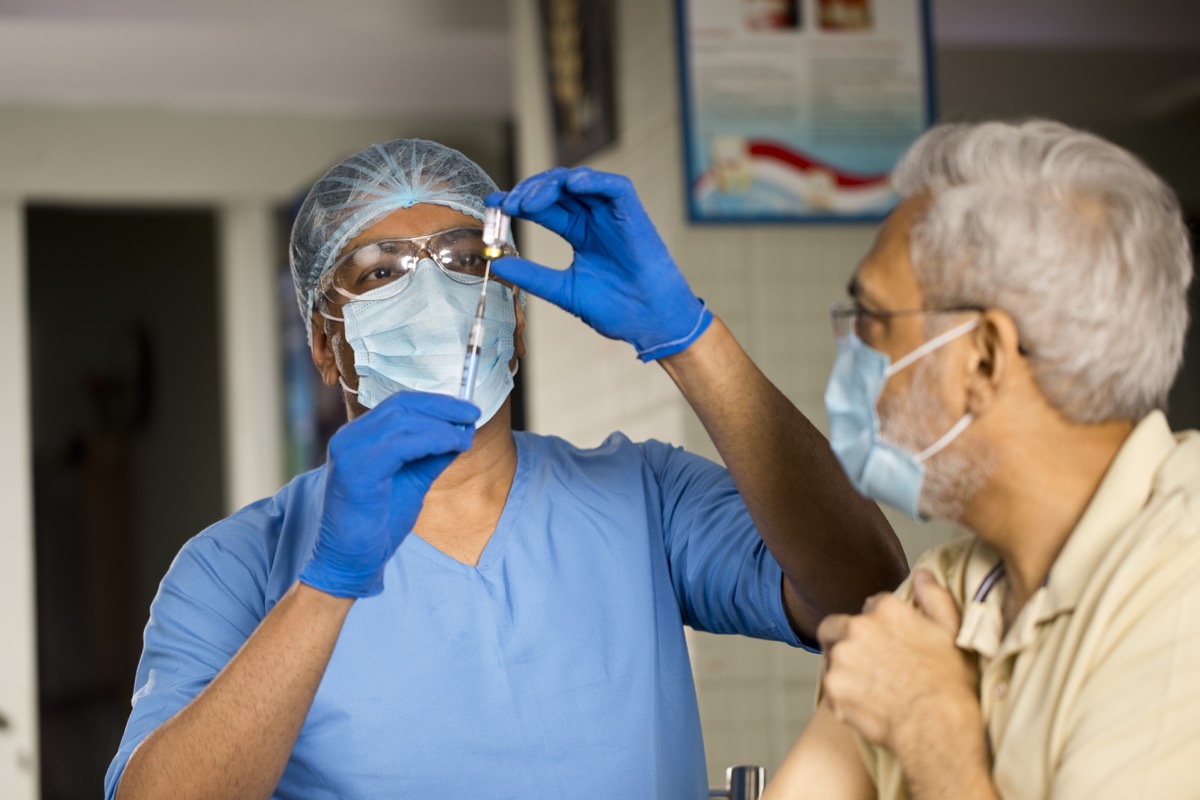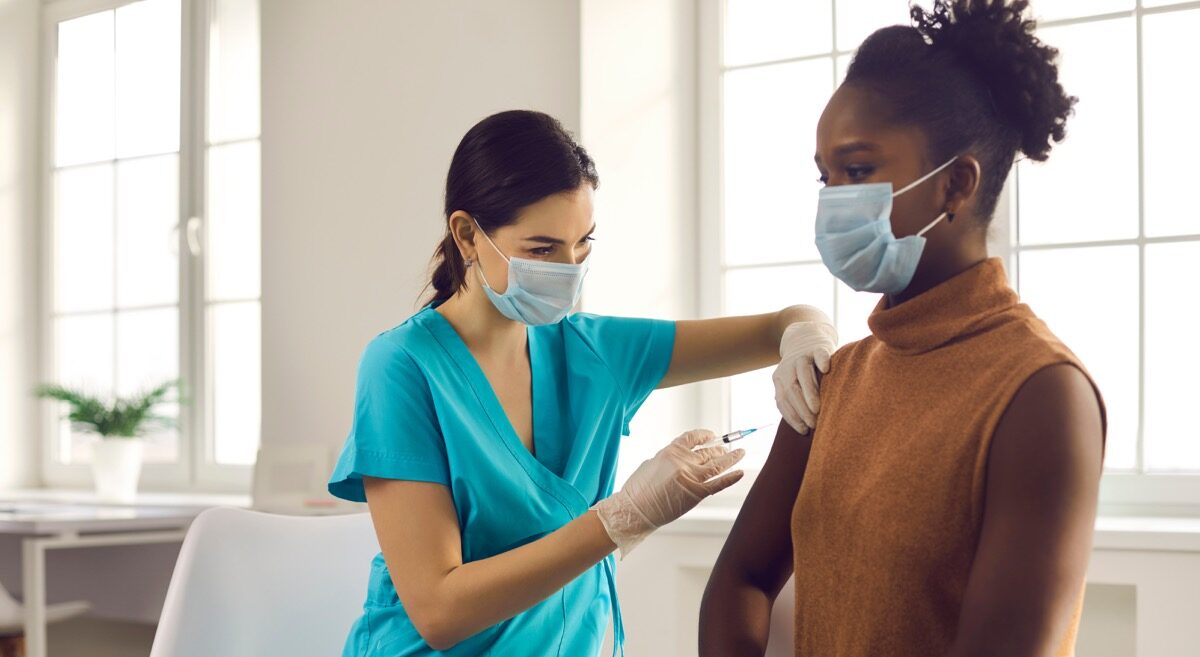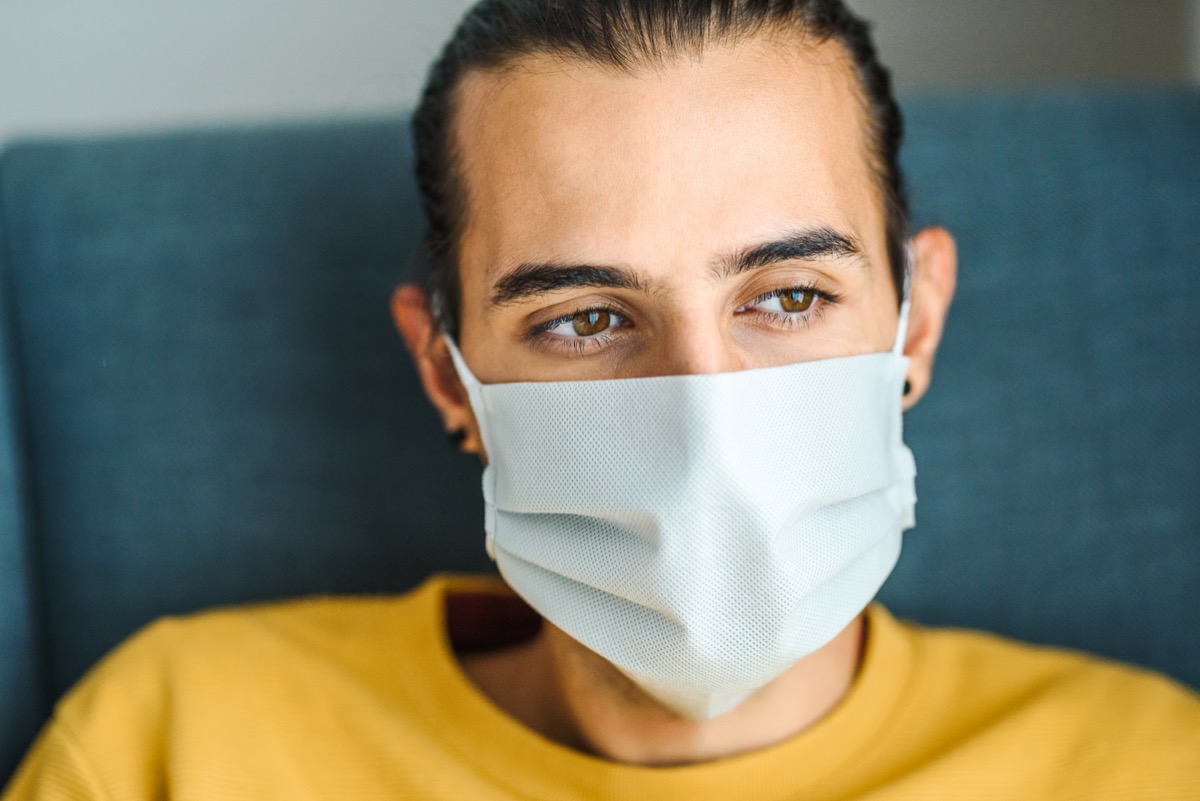Experts have found that breakthrough COVID cases—cases in people who contracted coronavirus after being fully vaccinated—are resulting in mild or no symptoms. CBS Minnesota reported that the Minnesota Department of Health (MDH) found 14 breakthrough cases, all of which were in healthcare workers. These cases were only detected because these patients were subjected to routine testing for work. Every case was mild or asymptomatic. Additionally, four breakthrough cases were found by the Oregon Health Authority (OHA), all of which were similarly mild or asymptomatic. This may sound surprising to some people, but health experts say it’s been documented in the research. “Clinical trials of both vaccines presently in use included breakthrough cases. In those cases, even though the participants got COVID-19, the vaccines reduced the severity of illness,” the OHA wrote on Twitter. And for more vaccine advice to follow, The CDC Says Don’t Do This Within 2 Weeks of Your COVID Vaccine. No vaccine is 100 percent effective, which leaves some room for vaccinated people to contract whatever you’re vaccinating against. The Moderna and Pfizer vaccines are 94 and 95 percent effective at preventing symptomatic COVID, respectively. The new Johnson & Johnson single-dose shot has been shown to be 72 percent effective in the U.S. at preventing moderate to severe COVID. Based on those findings, a small percentage of vaccinated people may still get the virus. If “the vaccine is 95 percent effective, that means that theoretically of 100 people vaccinated, there may be five who don’t have the same level of response to provide protection,” Kris Ehresmann, RN, director of the MDH Infectious Disease Epidemiology, Prevention, and Control Division, told CBS Minnesota. Of those people who do get sick, however, the illness will almost certainly be mild or moderate—as has been seen in the recorded cases of breakthrough COVID. In the clinical trials, all of the vaccines were shown to be 100 percent effective at preventing hospitalization and death from coronavirus. People who do get sick after being fully vaccinated, therefore, have mild or no symptoms. And for more on the limitations of the vaccine, The Pfizer CEO Says This Is How Often You’ll Need a COVID Vaccine. According to the Centers for Disease Control and Prevention (CDC), “Although COVID-19 vaccines are effective at keeping you from getting sick, scientists are still learning how well vaccines prevent you from spreading the virus that causes COVID-19 to others, even if you do not get sick.” It’s possible that once you’re fully vaccinated, you can still contract the virus and become a carrier.ae0fcc31ae342fd3a1346ebb1f342fcb “They may not show symptoms, but they have the virus in their nasal passageway,” emergency physician Leana Wen, MD, explained to CNN. “If they’re speaking, breathing, sneezing, and so on, they can still transmit it to others.” This would also cause a COVID test to come back positive. And for more up-to-date information, sign up for our daily newsletter. Breakthrough cases refer to people who tested positive 14 or more days after their second shot (or only shot, in the case of Johnson & Johnson). That’s because it takes a full 14 days to develop full protection. If you get COVID between your first and second shot, or before your vaccine has had time to reach its full potential, that’s not considered a breakthrough case. “It typically takes a few weeks for the body to build immunity (protection against the virus that causes COVID-19) after vaccination,” according to the CDC. “That means it’s possible a person could be infected with the virus that causes COVID-19 just before or just after vaccination and still get sick. This is because the vaccine has not had enough time to provide protection.” And for vaccine reactions to prepare for, These Are the Side Effects of the New Johnson & Johnson Vaccine, FDA Says.



